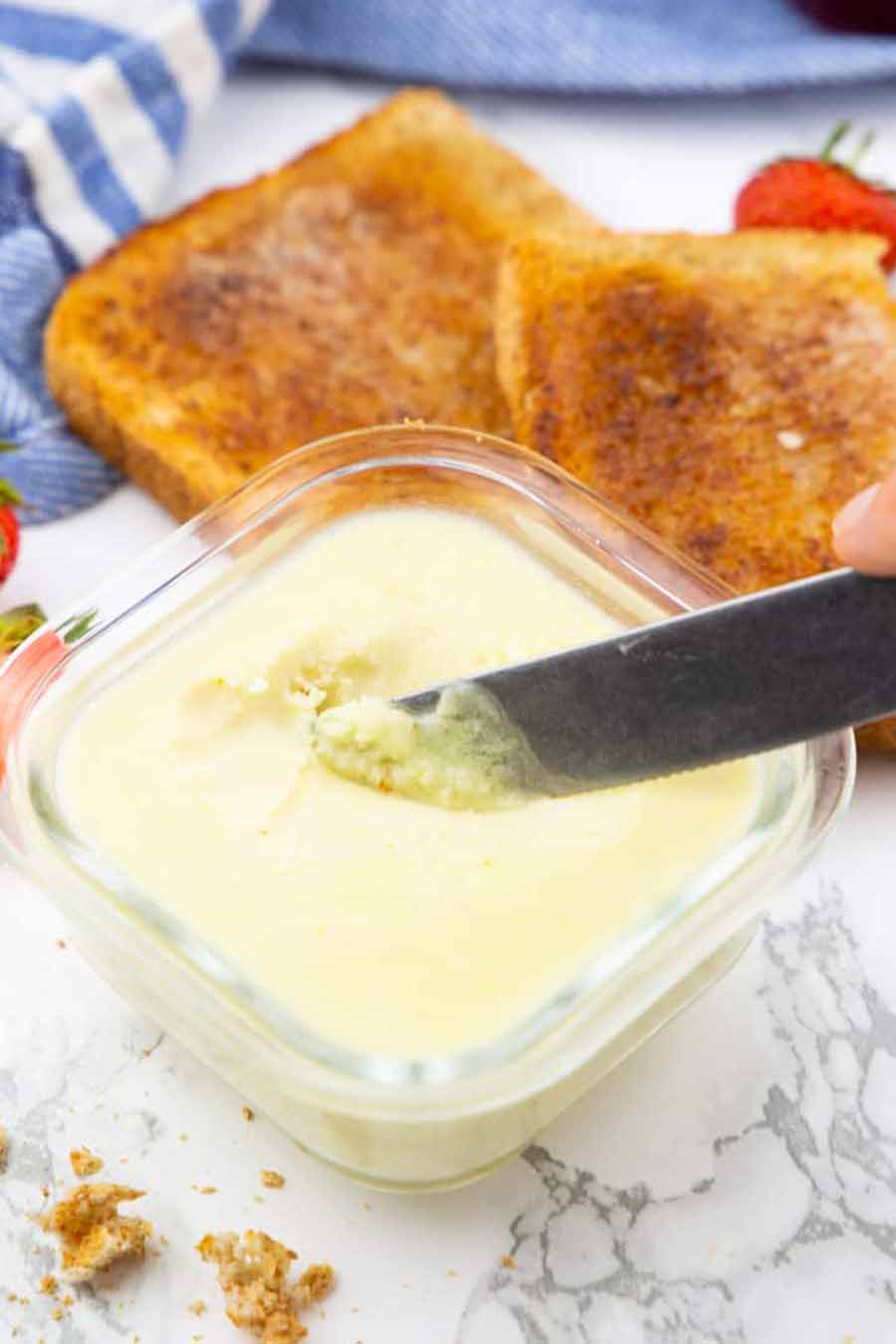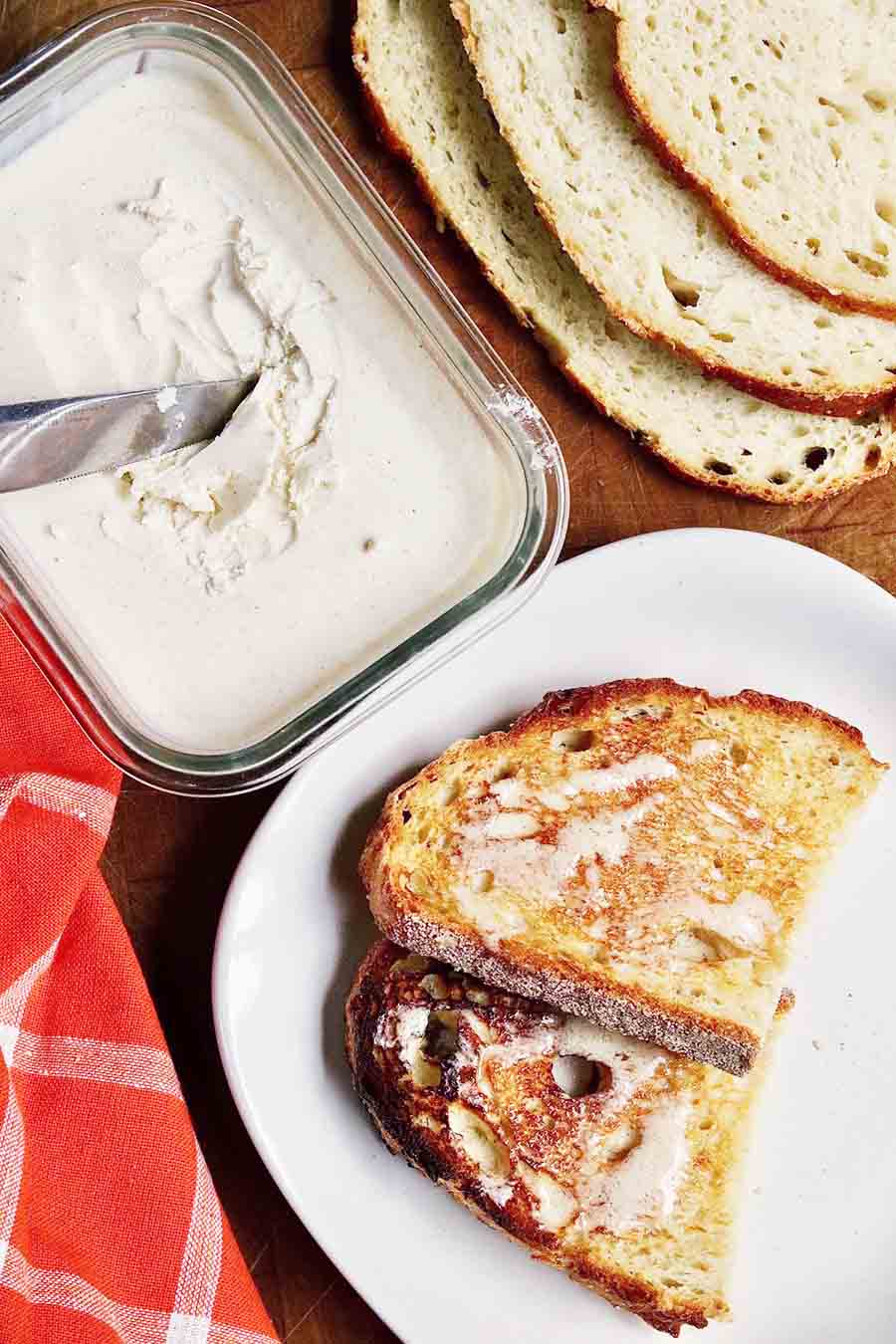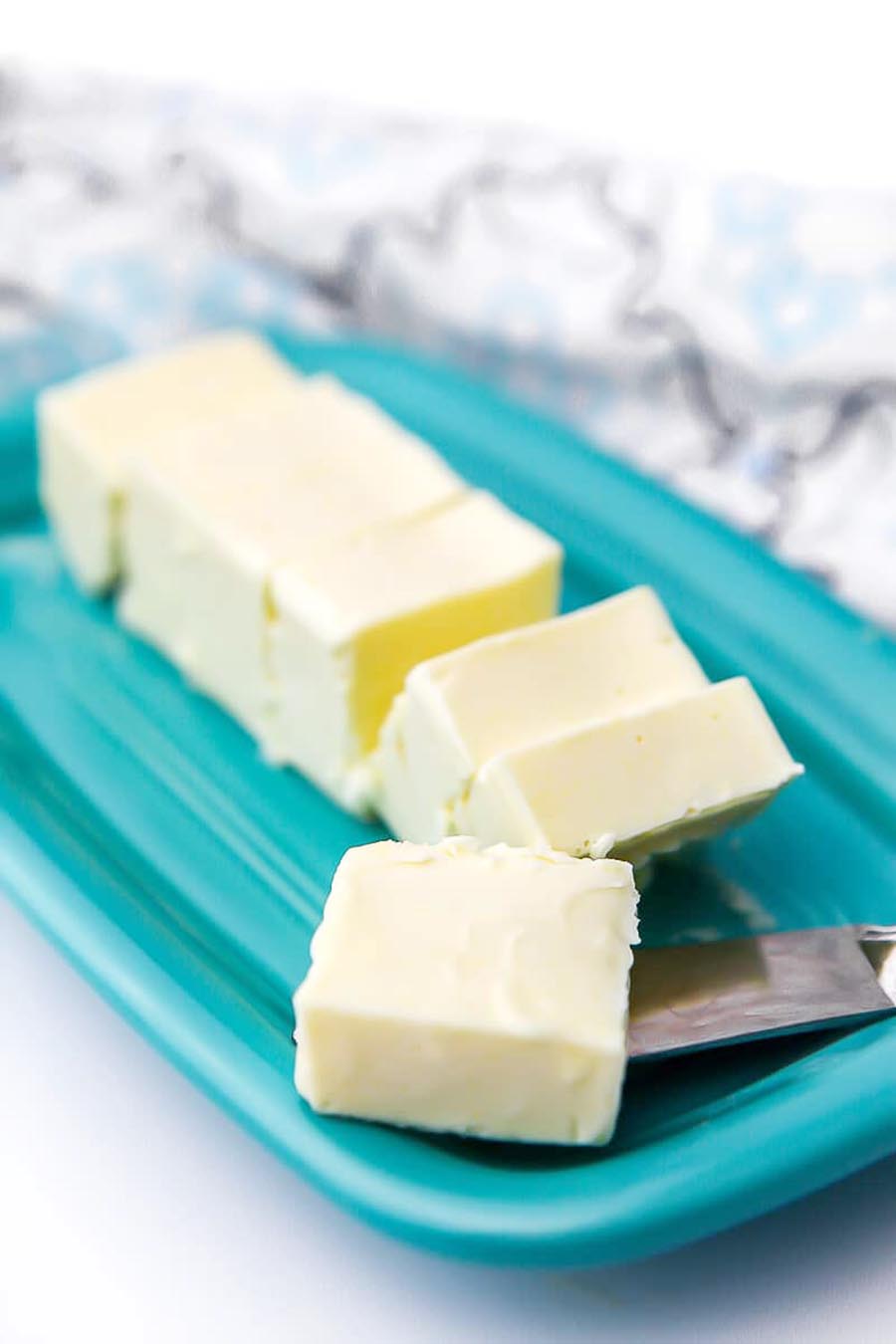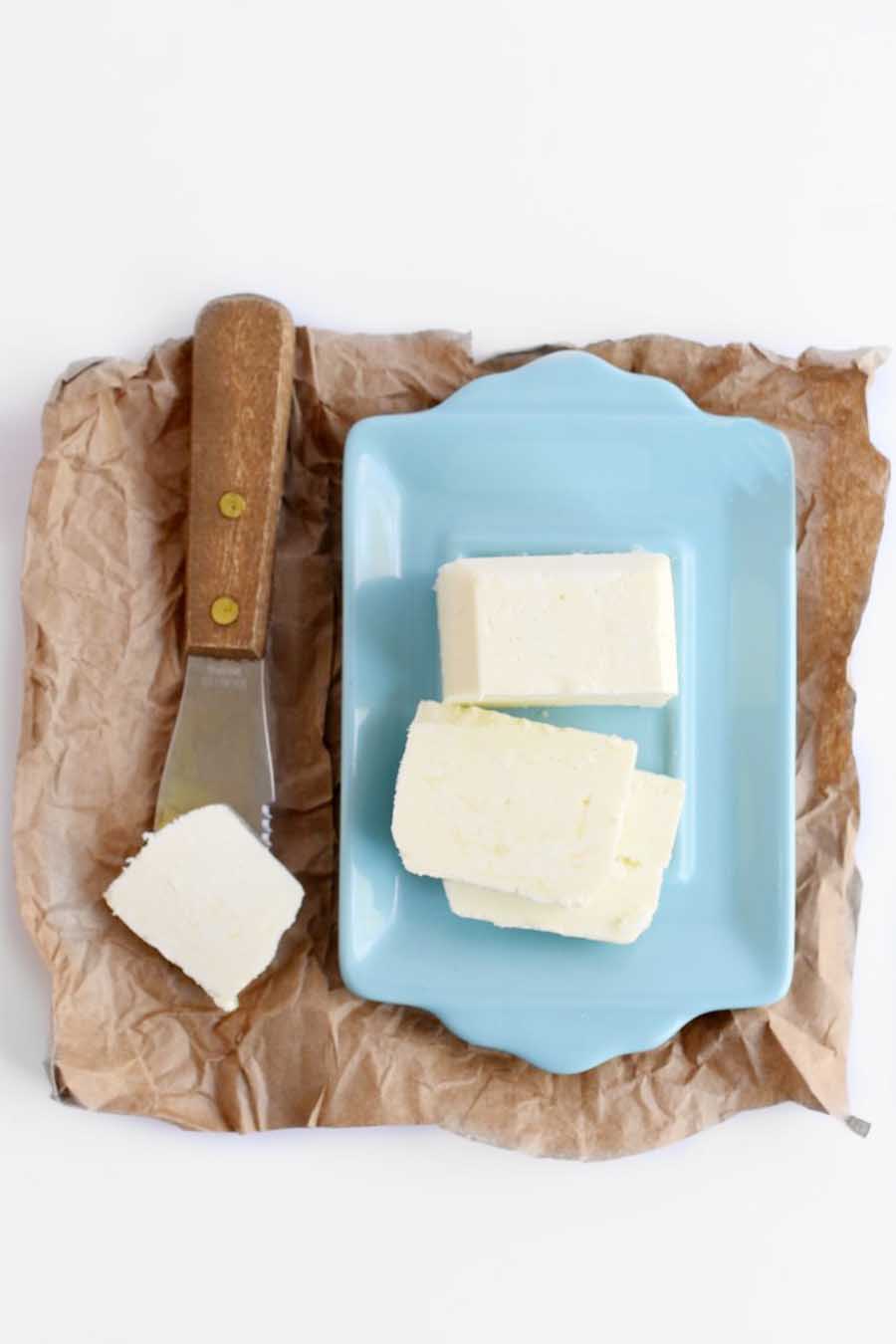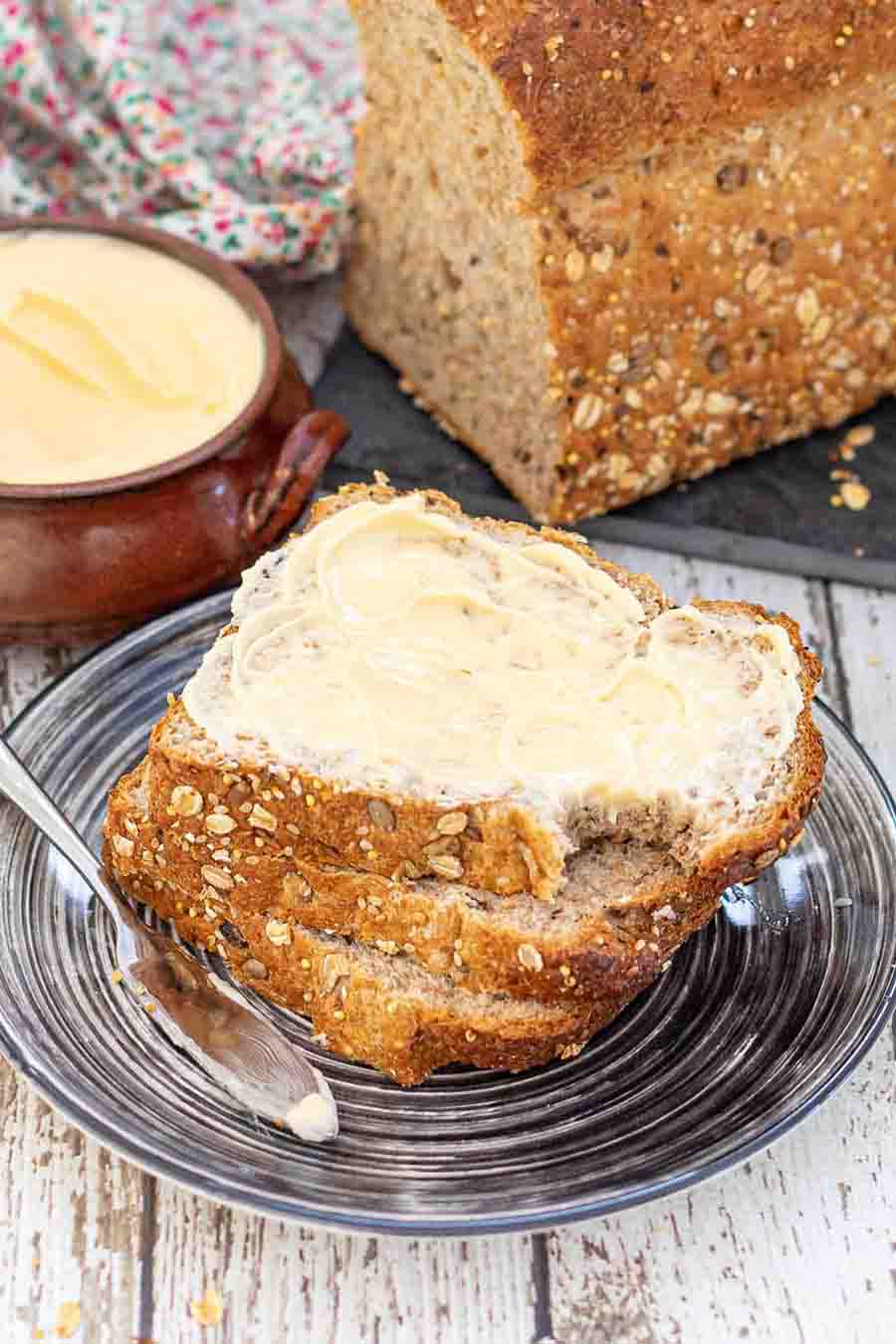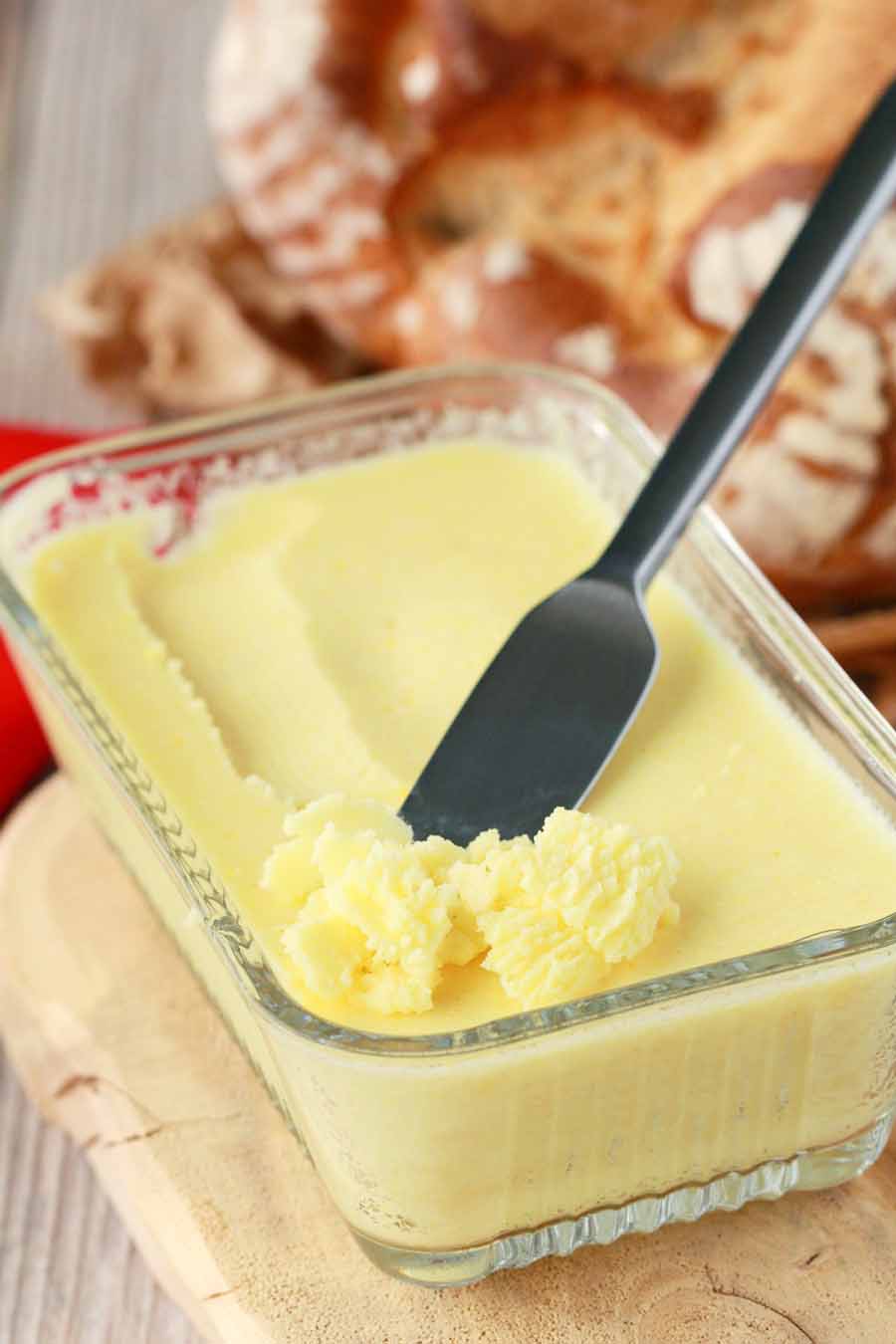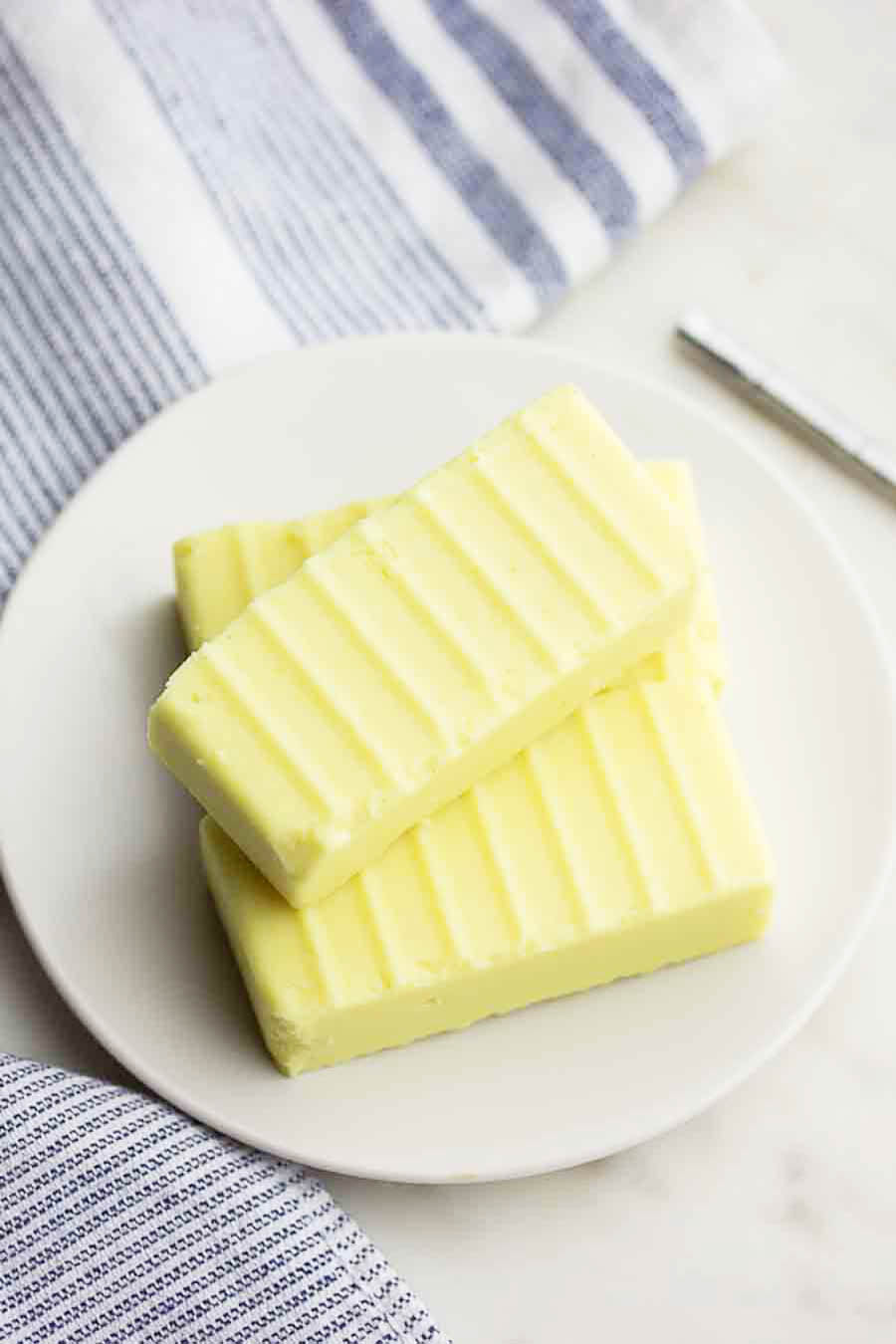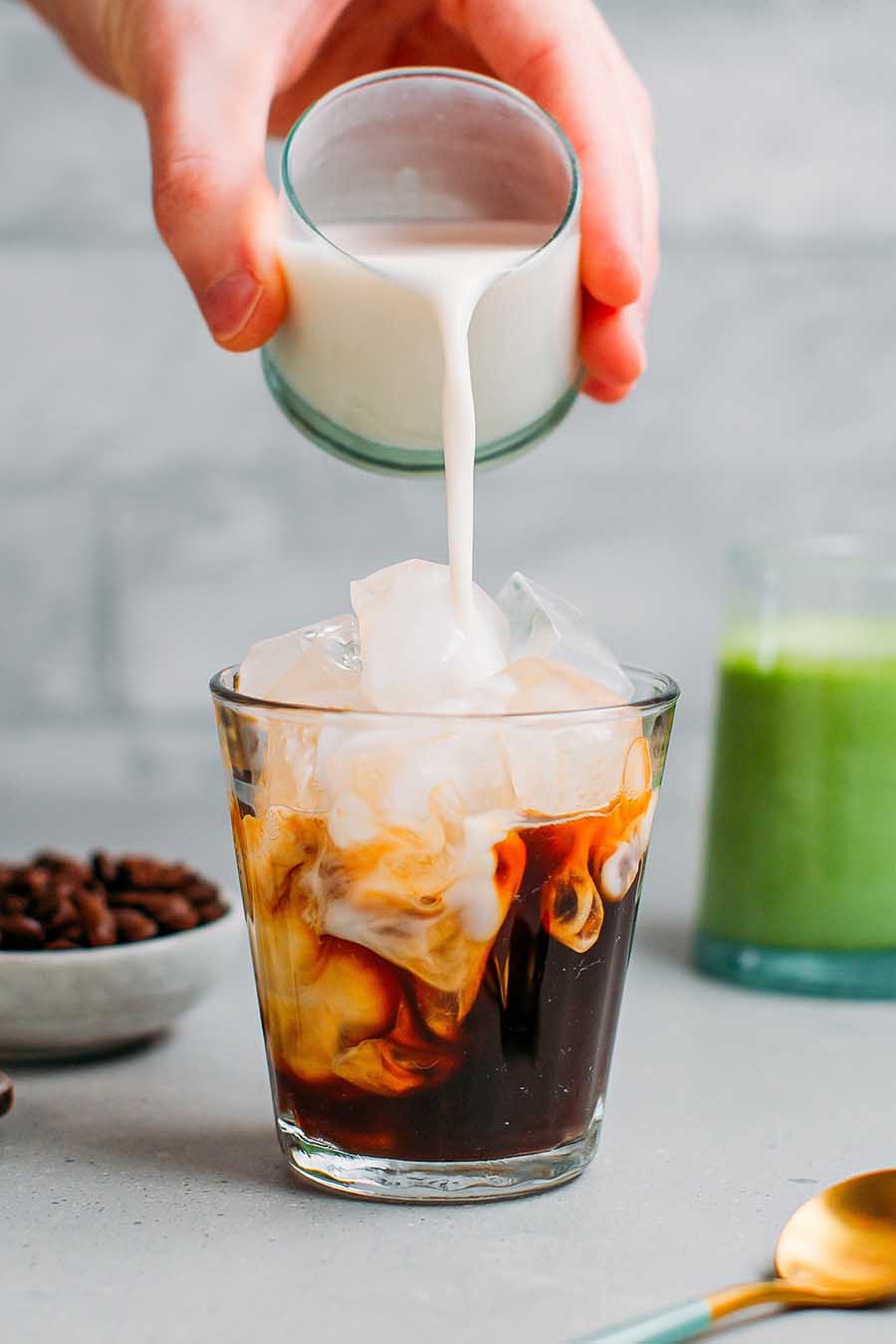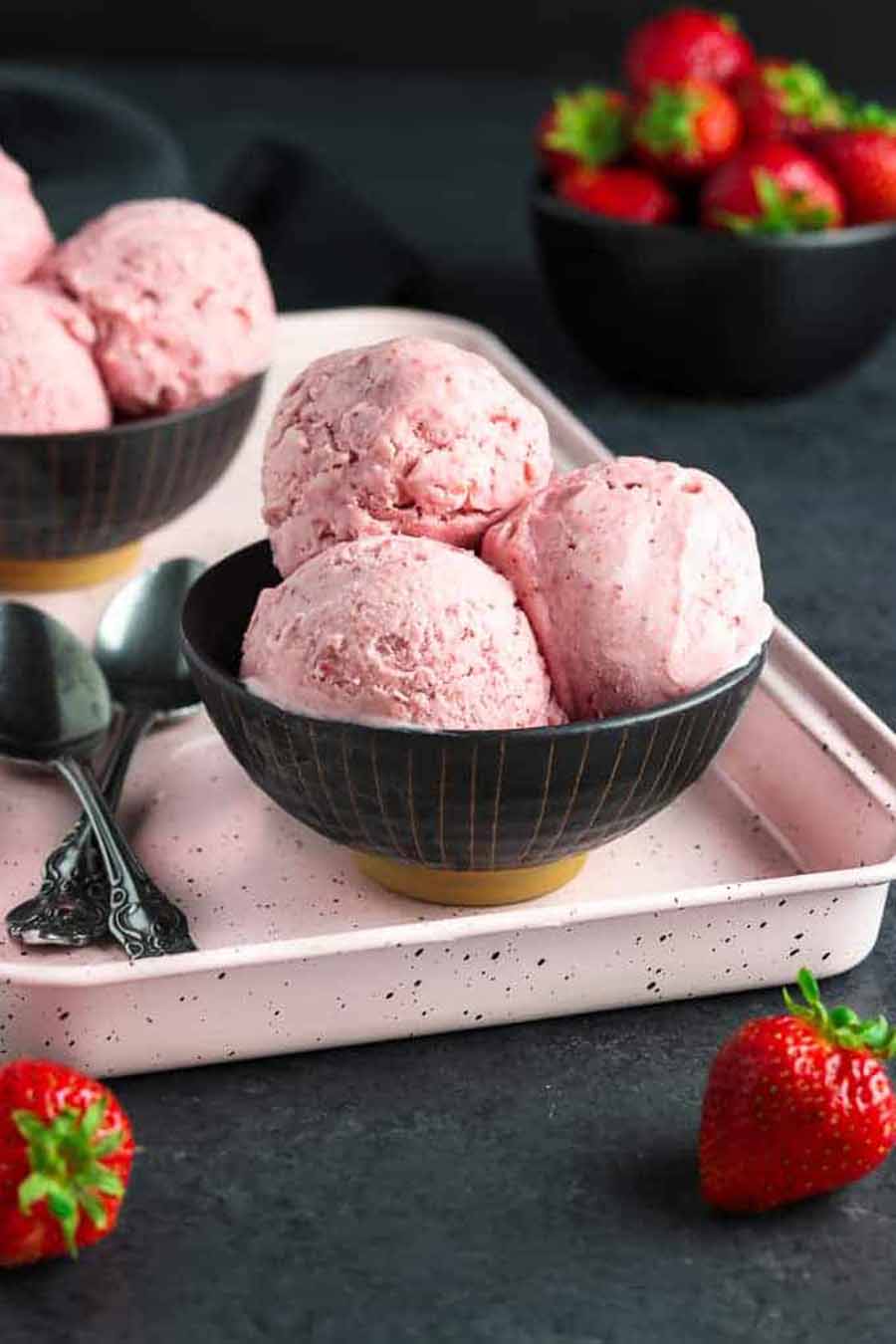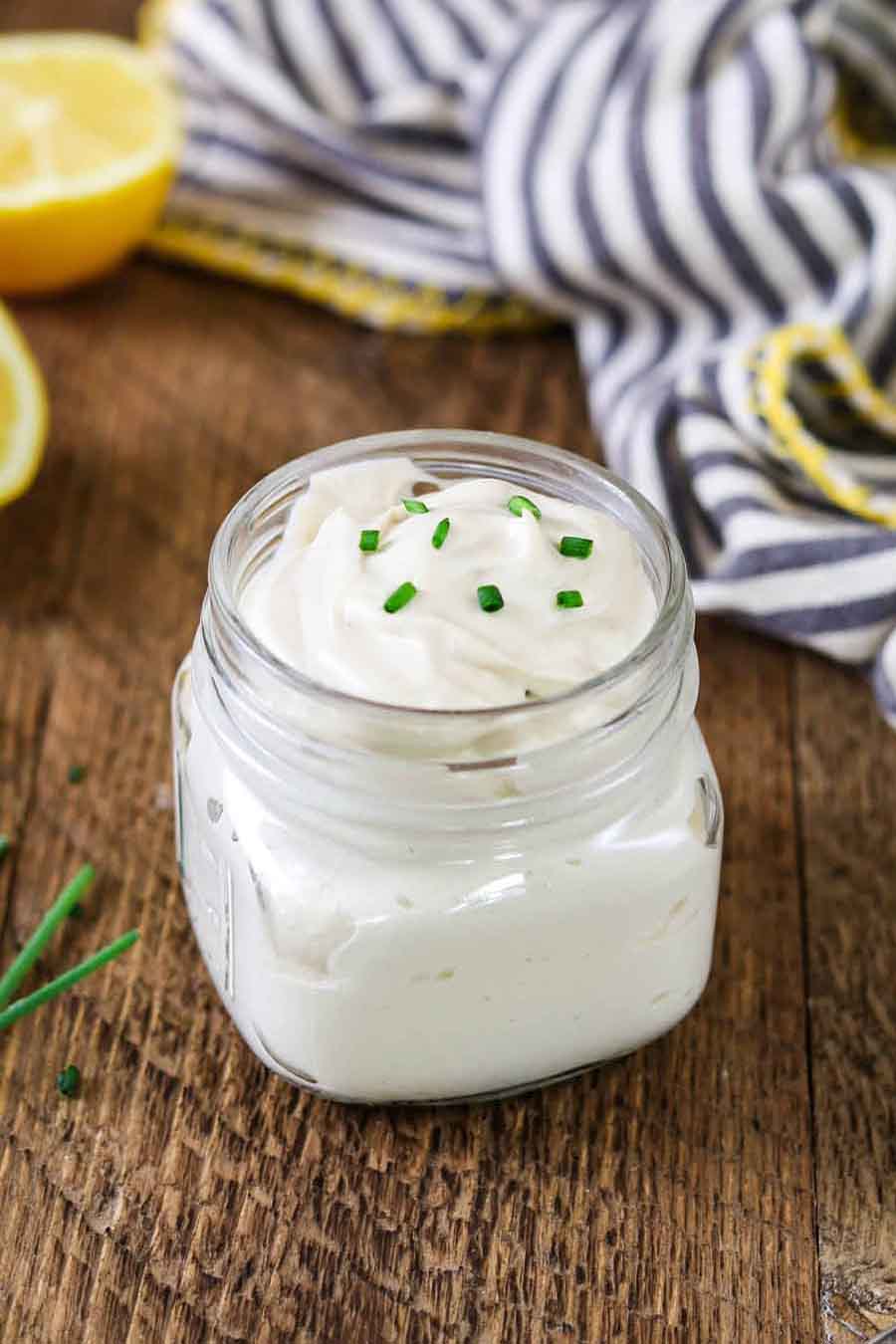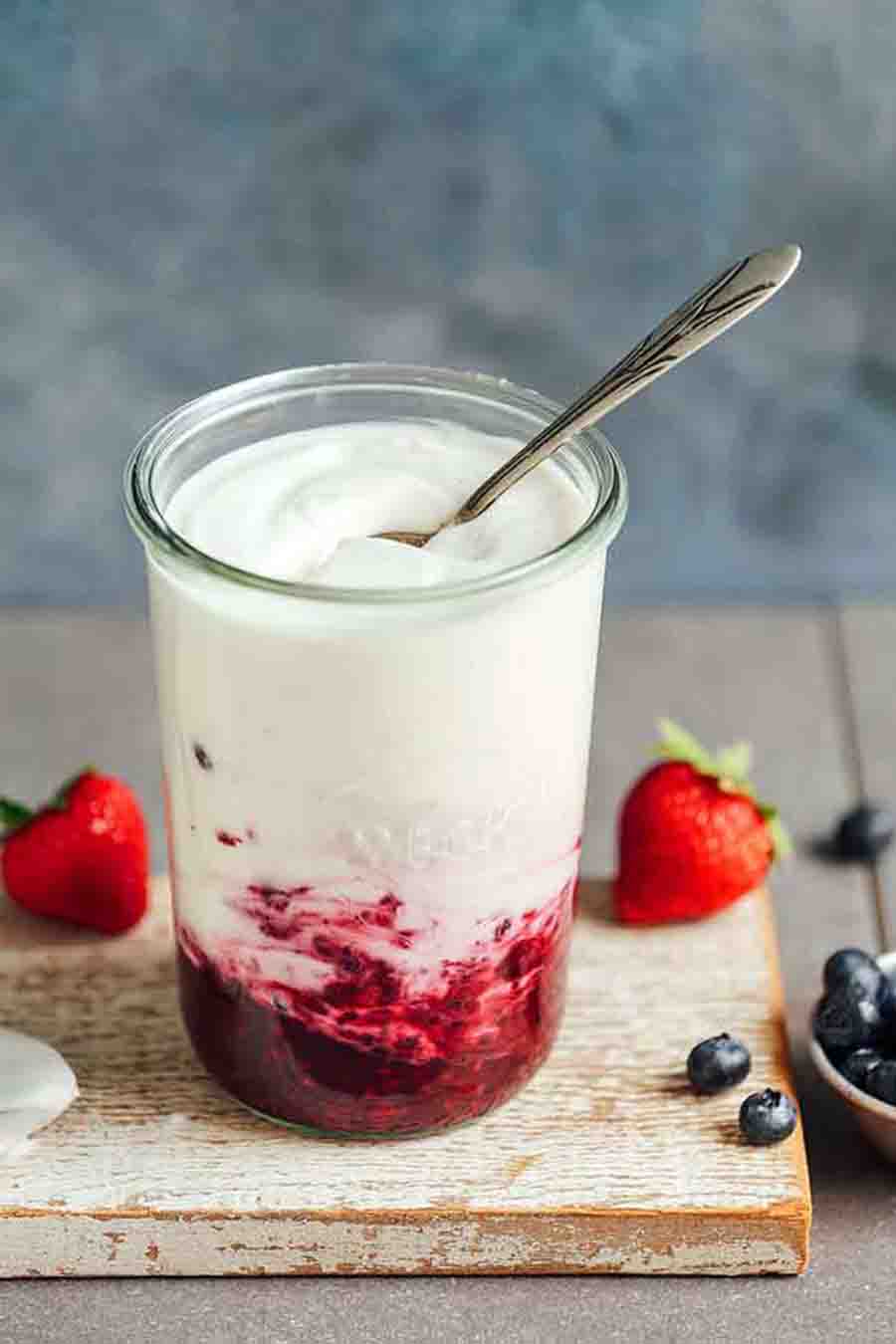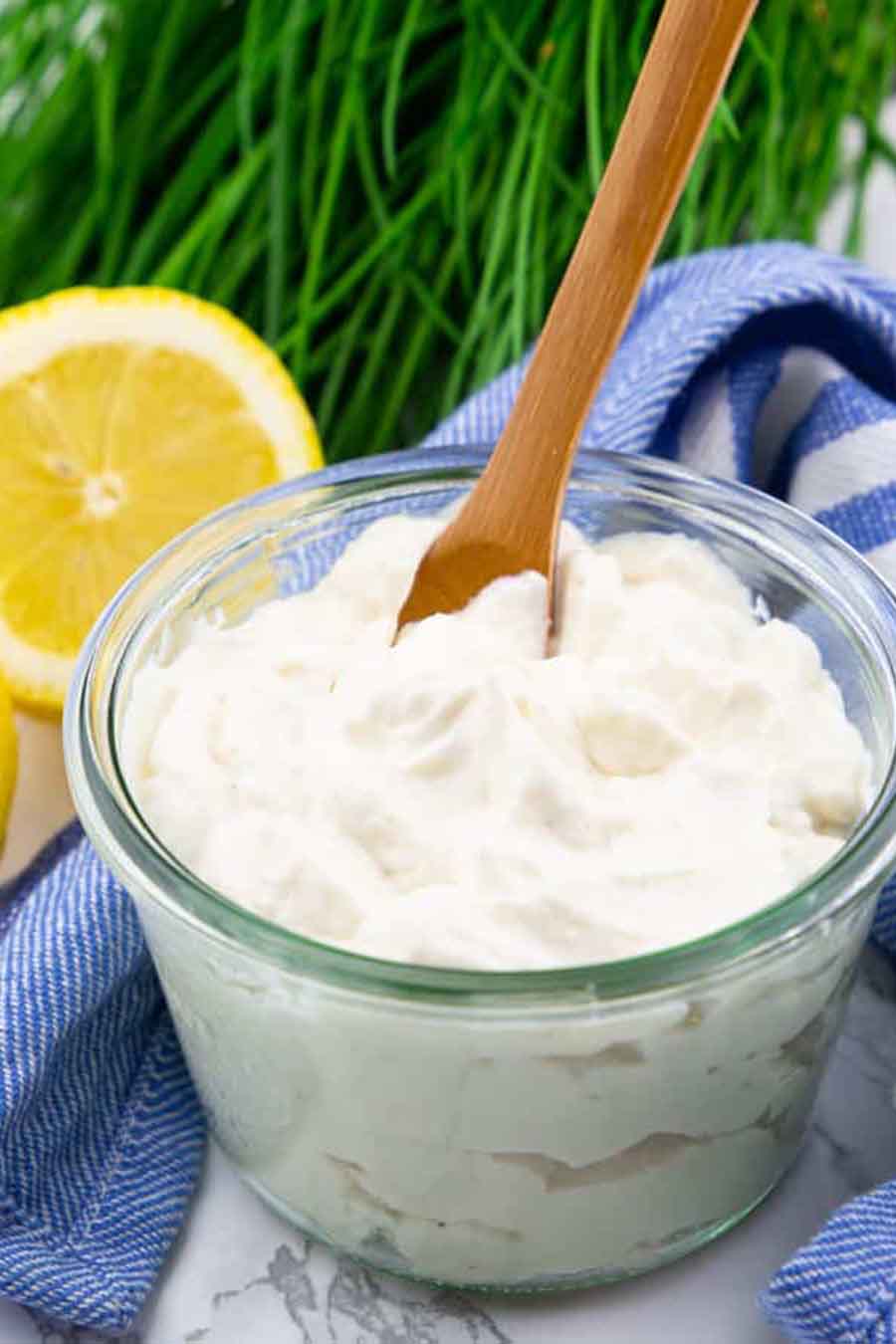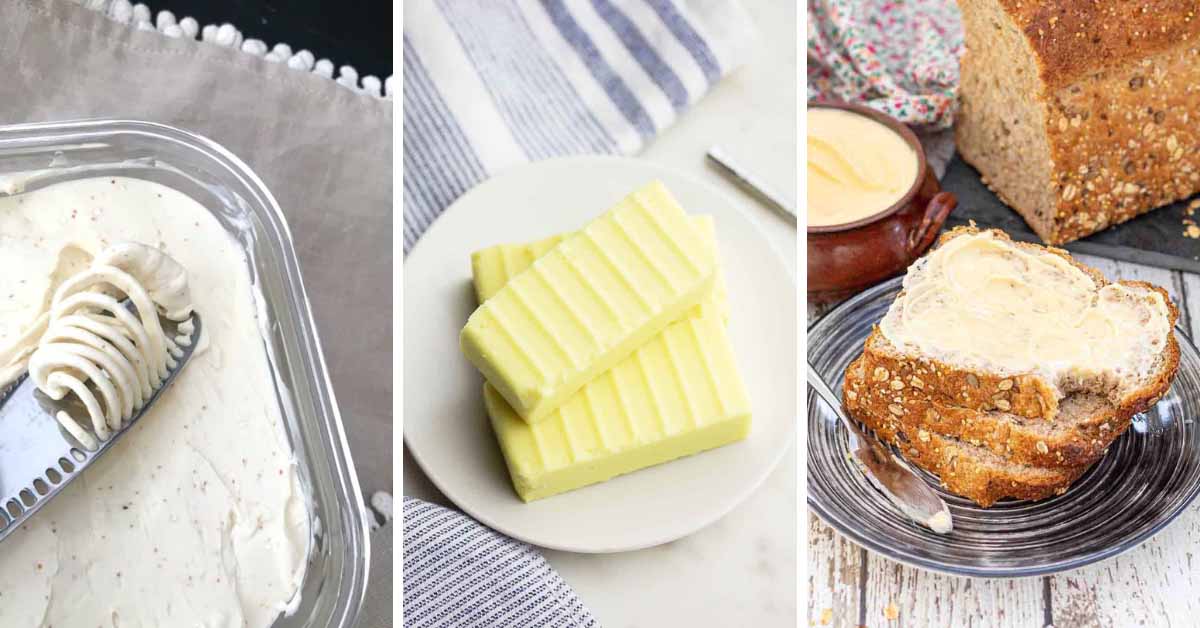
Do vegans eat butter? What about margarine?
Butter and margarine are common in cooking and baking and slathered on perfectly toasted bread, but are they vegan?
These questions are more common than you might think. It's easy to see why, too, because the answers aren't a simple yes or no.
Ingredients vary widely from brand to brand. While margarine isn't dairy-based like butter, some contain trace amounts of animal products, while others don't.
Luckily, getting a dairy-free version of that creamy taste you love is easier than ever. This guide will introduce you to the world of plant-based, vegan butter.
First, we'll talk to a dietitian about butter nutrition. Next, we'll talk about palm oil and what you should know. Then, we'll go shopping. I'll tell you the brands to look for in the store. Finally, we'll head into the kitchen with plenty of vegan recipes to inspire you.
Let's get started.
QUICK NAVIGATION
1. Is vegan butter healthy?
Are there health benefits to vegan butter? I talked to an expert in vegan nutrition for answers.
Nutrition advice from an expert
Plant-based butter is delicious, but is it healthy? How does it compare to its dairy-based counterpart?
To get answers, I turned to Anya Todd MS, RD, LD. She’s a registered dietitian who specializes in vegan nutrition and sustainable food systems.
First, I asked her if we should be eating butter at all. According to Todd, small amounts are okay.
“The amount of saturated fat we should limit ourselves to is a point of debate. That said, I’m never going to say no to a small pat of vegan butter on my baked potato.”
Is plant-based butter healthy?
But which is healthier? Vegan butter or dairy butter?
Comparatively, vegan versions contain zero cholesterol, while dairy ones contain 31 milligrams per one tablespoon serving. (1)
Neither will win health awards, she says.
“When it comes to vegan versus dairy, neither butter is healthy. Both are a source of unnecessary saturated fats and calories. While there are many views of saturated fat, research shows that it raises LDL cholesterol even when plant-sourced.” (2)
What about long ingredient lists? Vegan versions tend to have more than dairy butter. Does a simple ingredient list mean it’s healthier than one with eight components? Not really, says Todd.
“Look at the ingredient list of the favorite plant-based butter brands; they don’t contain a bunch of weird ingredients. These kinds of butter contain a pretty simple mixture of things like vegetable oil, cashews, cultures, and soy lecithin.”
The vegan advantage
It's important to understand that the most significant advantage of vegan butter over dairy butter is not related to health at all. In comparison, vegan versions of any product inherently offer additional benefits over non-vegan ones.
There are ethical and environmental concerns surrounding the production of animal productions. Embracing a vegan lifestyle allows us to address these concerns.
If we can live without harming animals, why wouldn't we?
Vegan products like plant-based butters enable us to do exactly that.
2. What is palm oil?
You might be asking yourself what palm oil has to do with vegan butter. Good question. First, let’s talk about what it is. Then, I’ll explain why you should care.
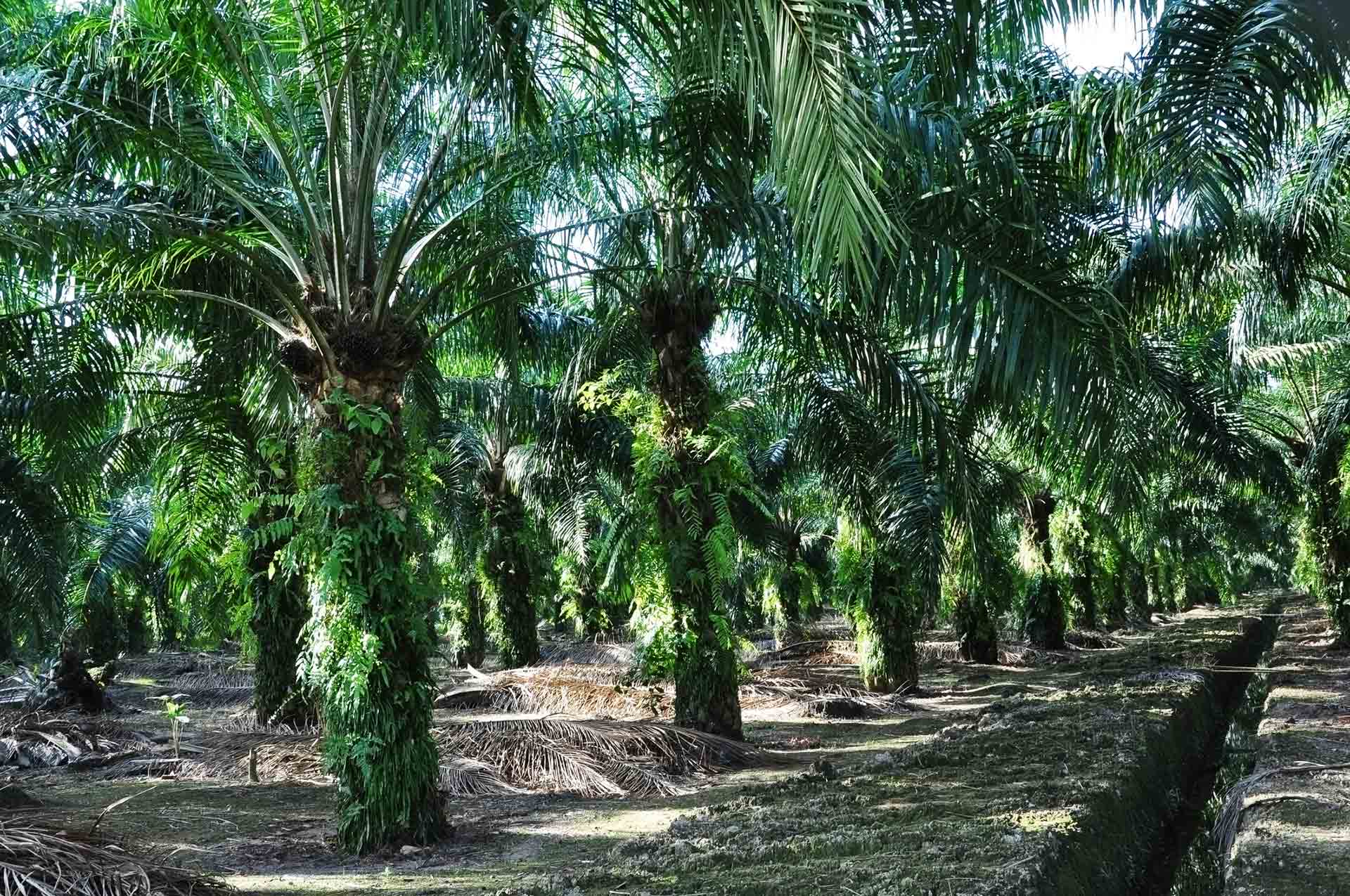
A grove of oil palm trees / Source
Palm oil comes from trees
The Oil palm tree (Elaeis guineensis) is a member of the palm family of trees. It is native to West and Southwest Africa but is also extensively cultivated in Southeast Asia, particularly in countries like Indonesia and Malaysia.
Oil palms are an excellent source of oil. They produce two distinct products with varying uses: palm oil and palm kernel oil.
Palm oil is extracted from the fruit's fleshy middle layer, the mesocarp. Meanwhile, palm kernel oil comes from the seed inside the palm fruit. Though derived from the same fruit, both have different compositions and applications.
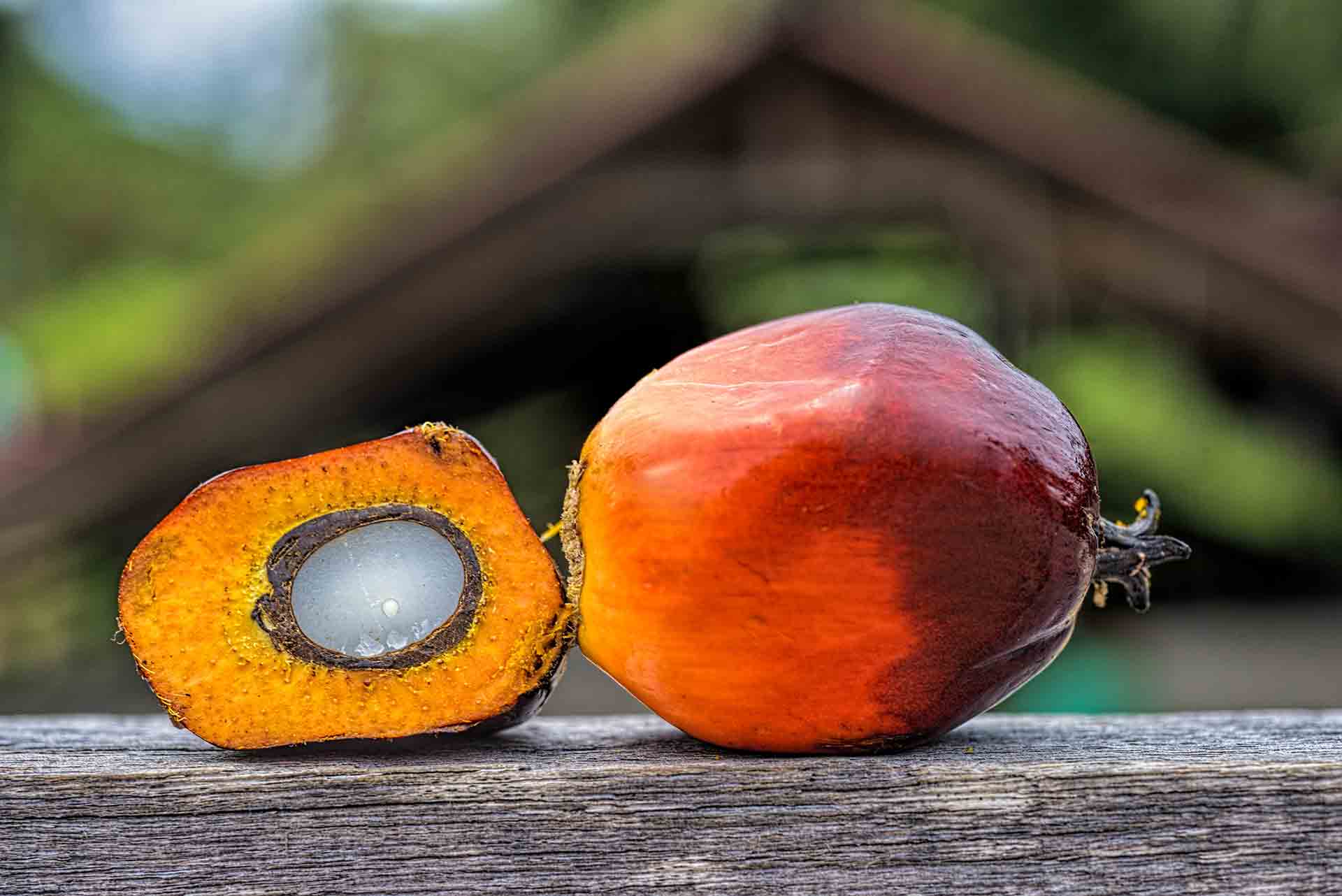
Oil palm fruit / Source
How are they used?
Palm oil is more prevalent in food products and non-food applications like biodiesel and soaps. At the same time, the cosmetic and detergent industries favor palm kernel oil for its lathering and moisturizing properties.
Palm Oil
- Food Products: Widely used in cooking oils, margarine, shortenings, processed foods (such as baked goods, confectioneries, instant noodles, and snacks), and as a frying fat due to its stability at high temperatures.
- Non-Food Products: Found in soaps, detergents, candles, and used as a feedstock for biodiesel production. Its emollient properties make it valuable for products like creams and lotions in the cosmetics industry.
Palm Kernel Oil
- Food Products: Less commonly used directly in food but found in some specialty fats and non-dairy creamers.
- Non-Food Products: Extensively used in personal care products like soaps, shampoos, and cosmetics because of its excellent foaming and moisturizing properties. It is also used in the production of detergents and as a base for many oleochemicals used in various industrial applications.
Eventually, the left-over cake residue after the kernel oil is extracted is then pressed into a cake and fed to cattle. (4)
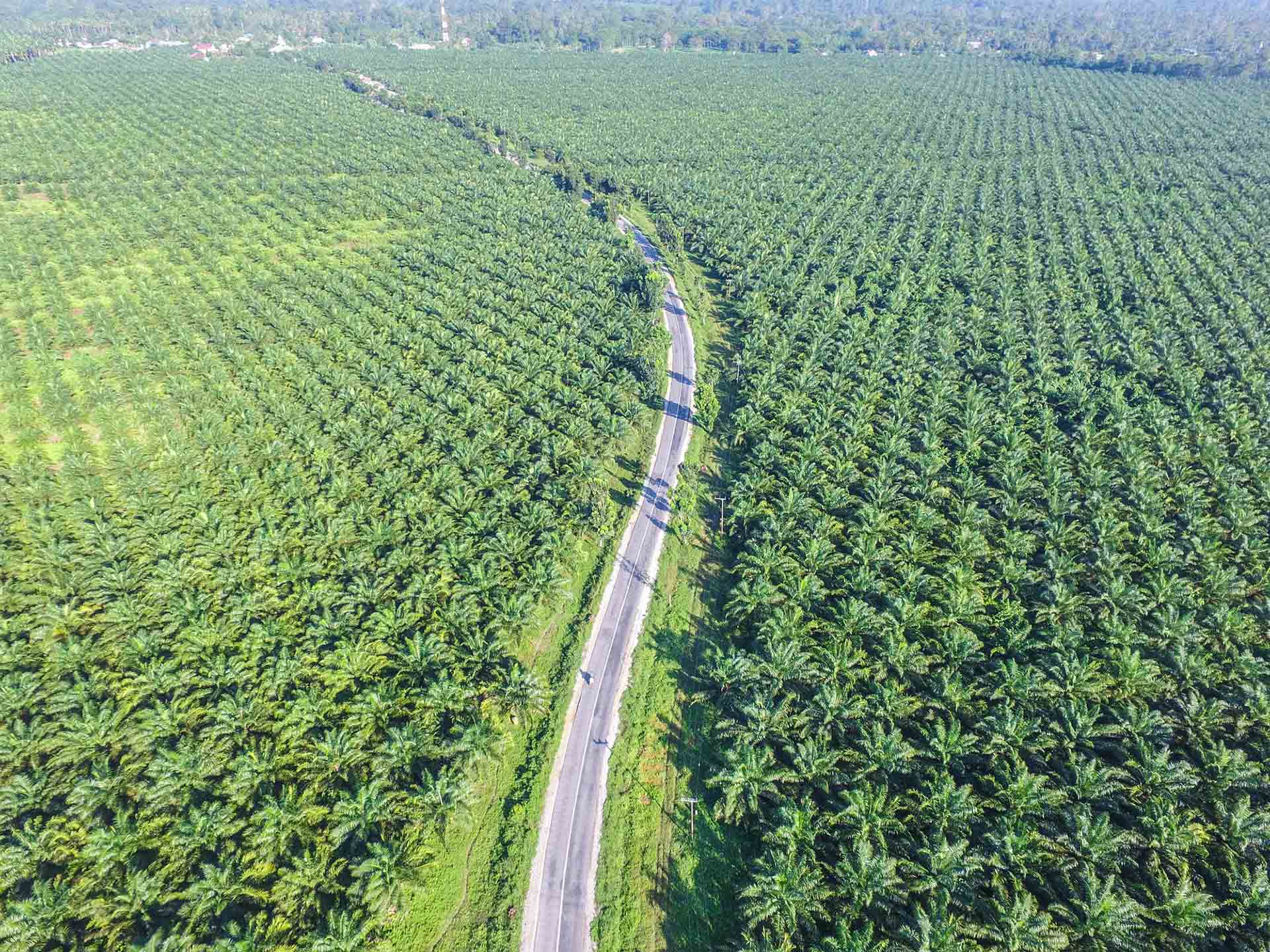
An overhead view of a large oil palm farm / Source
Its production affects animals
Palm oil has gained mainstream notoriety due to the extensive deforestation caused by expanding palm oil plantations.
The palm oil industry has cleared millions of acres of forest, destroying many species' habitats. This deforestation has devastating effects on wildlife, particularly endangered species like orangutans, tigers, and elephants, which face increased threats of extinction.
In addition to habitat loss, animals displaced by deforestation may struggle to find food, leading to increased mortality rates. The disruption of natural habitats also affects breeding patterns, making it harder for species to reproduce successfully and maintain their populations.
The destruction of these forests disrupts entire ecosystems, potentially leading to the extinction of biodiversity and plant species that do not exist elsewhere.
And it's not just bad for animals; it's terrible for the planet, too.
Palm oil plantations contribute to climate change by releasing significant amounts of stored carbon dioxide into the atmosphere when trees are cut down and burned. Peatlands, often drained for palm oil cultivation, release even more greenhouse gases.
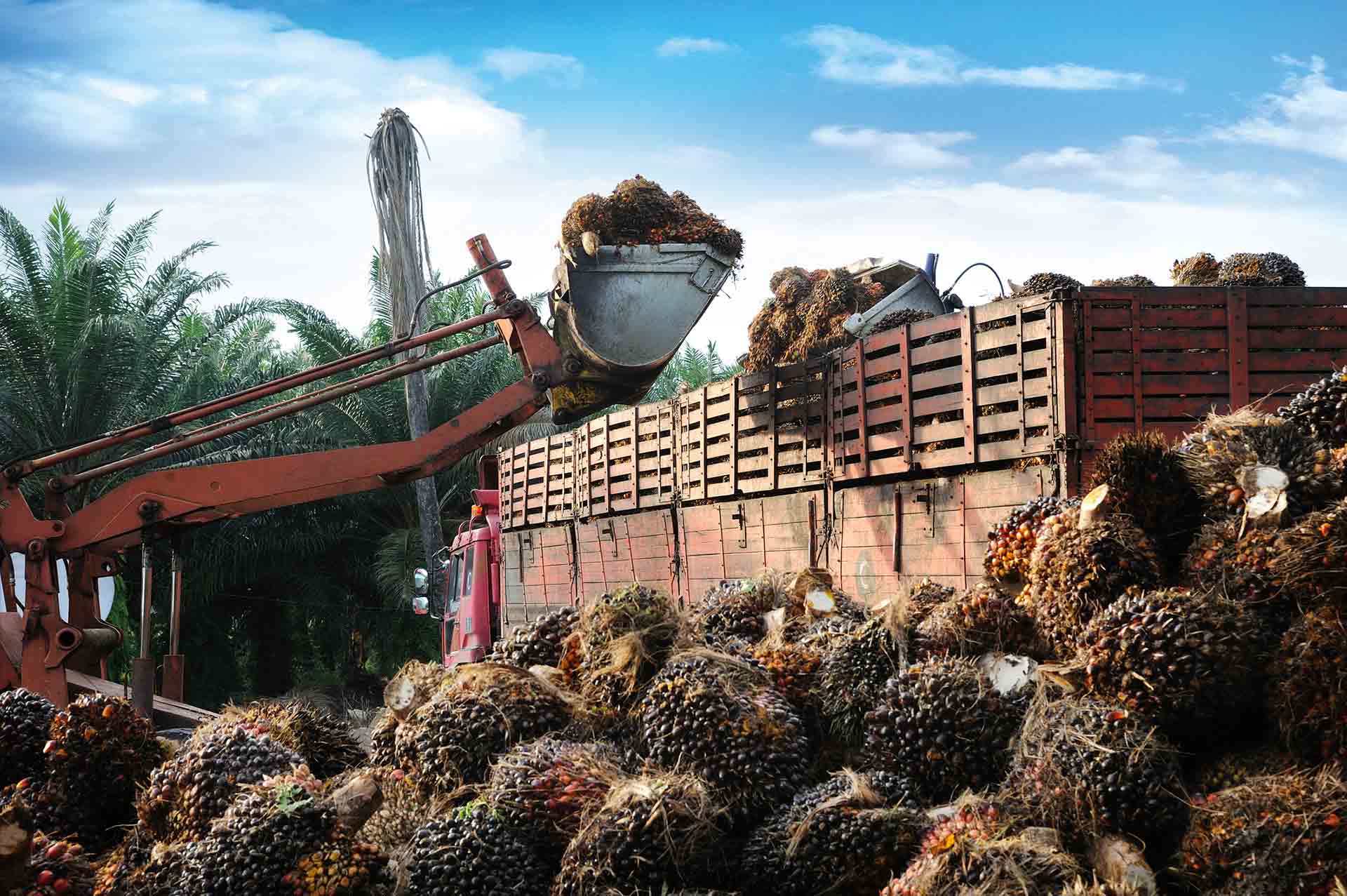
A bulldozer harvesting oil palm fruits / Source
It has many names
Finding out if a product contains palm oil is more difficult than you imagine. Surprisingly there are many different names for it. Not to mention, it’s in a variety of products.
Look at just some of its many names:
- Vegetable Oil – #
- Vegetable Fat – #
- Palm Kernel – #
- Palm Oil Kernel – #
- Palm Fruit Oil – #
- Palmate – #
- Palmitate – #
- Cetyl Palmitate – #
- Octyl Palmitate – #
- Palmolein – #
- Palm Stearine – #
- Palmitoyl Oxostearamide – #
- Palmitoyl Tetrapeptide-3 – #
- Palmityl Alcohol – #
- Glyceryl Stearate – #
- Elaeis Guineensis – #
- Hydrated Palm Glycerides – #
- Stearic Acid – #
- Steareth -2 – *
- Sodium Laureth Sulfate – ^
- Sodium Lauryl Sulfate – ^
- Sodium Lauryl Sulfoacetate – ^
- Sodium Lauryl Lactylate/Sulphate – *
- Sodium Dodecyl Sulphate – ^
- Sodium Isostearoyl Lactylaye – ^
- Sodium Kernelate – #
- Sodium Palm Kernelate – #
- Cetyl Alcohol – ^
Legend:
# – Definitely palm oil
* – Often palm oil, but could be other vegetable oils
^ – Either palm oil or coconut oil
What does palm oil have to do with vegan butter?
Notably, several brands of plant-based butter contain this oil. Nutiva says its products are responsibly sourced and sustainably produced in its Red Palm Oil FAQ section.
Unfortunately, not all brands talk about the use of it in their products. Melt Organic used to use Rainforest Alliance Certified oil and addressed it in on their website, but the information has since been removed.
There are conflicting opinions on this subject, too. Technically, palm oil is a vegan product. It has overlapping ethical, environmental, and humanitarian issues surrounding its production.
Deciding to consume it is a topic that vegans should be discussing. Ultimately any time an animal loses their life or home to a human, it becomes a vegan issue.
Sustainable palm oil
Why sustainable palm oil? Because it helps animals.
The fact is, the demand for palm oil has never been higher. Because of this demand, we'll see it in more vegan products. Creating a demand for sustainable palm oil effectively conveys to brands that we won't contribute to deforestation and biodiversity loss with unsustainable palm oil.
Saving the orangutans and their forests means addressing the catastrophic impacts of conventional palm oil production. We can start by making sustainable palm oil the norm.
3. Shopping guide
Here’s what you need to know before you head to the store.
Find vegan butter in stores
Let's talk butter basics. You probably know butter is a dairy product made with milk from animals like cows, goats, or sheep. But what about margarine? Is it a suitable butter replacement for vegans?
Well, yes and no.
Margarine is merely a blend of vegetable oils. Some brands add whey or lactose to it, both animal-based ingredients. Not all brands do, though. As a result, some margarine is vegan-friendly.
Look for the following vegan butter brands.
U.S. vegan butter brands
Brands with at least one palm oil-free product have this ⊕ symbol next to their name.
U.K. vegan butter brands
Brands with at least one palm oil-free product have this ⊕ symbol next to their name.
Worldwide vegan butter brands
Brands with at least one palm oil-free product have this ⊕ symbol next to their name.
Disclosure: Some of the links in the shopping guide are affiliate links. I earn from qualifying purchases. See the Affiliate Policy for more details.
4. Vegan butter recipes
Ready for cooking inspiration? These recipes will surely satisfy you.
Recipes to try
- Vegan Butter
Vegan Heaven
- Pantry-staple vegan butter
Spabettie
- Plant-based butter
The Cheeky Chickpea
- The Best Vegan Butter
The Hidden Veggies
- Butter Substitute
Fork and Beans
- Easy Butter
A Virtual Vegan
- Homemade Butter
Loving it Vegan
- Vegan Butter
Nora Cooks
- Vegan Butter
Simple Vegan Blog

Truth in advertising
I am committed to providing accurate information to the vegan community. This topic has been meticulously researched and contains researched and cited sources, ensuring transparency and reliability for readers seeking accurate information.
Please contact me if you find incorrect data.

